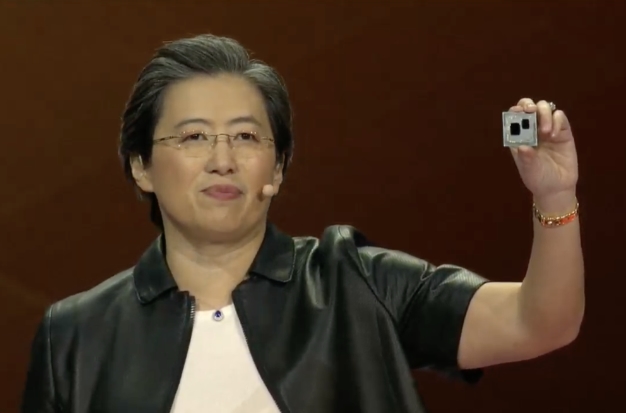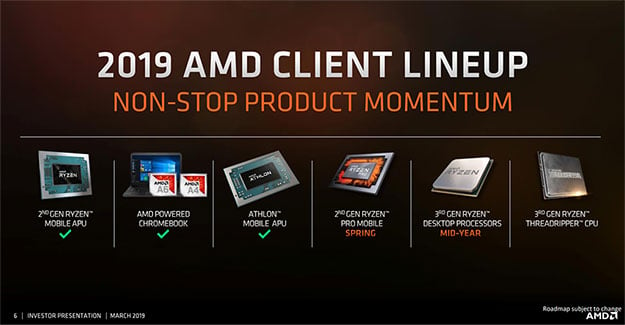AMD Confirms Ryzen Threadripper 3000 Zen 2 CPUs For 2019 Launch

It has always been a safe assumption that AMD would continue developing its Threadripper processor family for high-end desktop (HEDT) systems that need that kind of multi-core grunt. In case there was any doubt, however, AMD came out and confirmed plans to launch a third-generation Threadripper line sometime before the end of the year.
AMD made the revelation in a slide deck that was part of a presentation it gave to investors yesterday evening. The investor presentation is mostly standard stuff, with AMD pointing out the different market opportunities that are out there (edge computing, security, data analytics, PCs, Internet of Things, and so forth). But there was one particular slide that stood out. Here's a look...
The slide is labeled "2019 AMD Client Lineup" and it includes half a dozen products. Last on the list is AMD's third-gen Threadripper, so obviously it will be headed to retail later this year. Exactly when, however, is not yet known.
The roadmap also points to third-gen Ryzen desktop processors shipping in 2019. They are slated to arrive "mid-year," which would put the launch sometime around June, give or take a month (it has been rumored they will launch on July 7). The upcoming desktop chips are based on AMD's 7-nanometer Zen 2 microarchitecture, otherwise known as Matisse.
AMD previously teased an 8-core, 16-thread Ryzen 3000 series processor at the Consumer Electronics Show (CES) earlier this year, where it was shown to perform comparably to Intel's Core i9-9900K processor. We have also seen unofficial evidence that Ryzen 3000 chips could ship in 12-core/24-thread and even 16-core/32-thread variants, with up to a 5.1GHz boost clock.
Finally, while on the topic of rumors and speculation as it all relates to AMD, we saw a slew of ASRock X570 motherboards leak out from the Eurasian Economic Commission (EEC) in January. Ryzen 3000 processors should still work in existing X470 motherboards, with X570 adding some additional bells and whistles, such as PCie 4.0 support.


